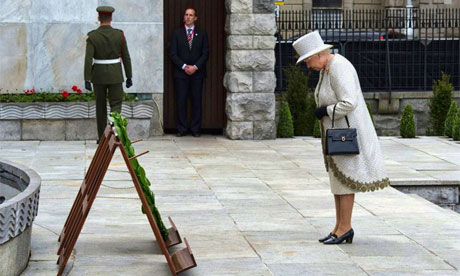Commentators on both sides of the Irish Sea are unanimous in declaring the Queen in Ireland was an extraordinary triumph, one that opened hearts and shifted attitudes, laying ghosts to rest and opening up a new era of friendship for both nations.
Three of the key moments occurred on visits to historically resonant places. At the Garden of Remembrance, she bowed her head before a monument to those who died for Irish independence; she met footballers at Croke Park stadium, where the first ‘Bloody Sunday’ massacre in 1920 robbed Britain of its moral authority to rule Ireland; and at Islandbridge, she honoured the 49,000 Irish who died for the Crown during World War I.
The first two recognised that Ireland’s struggle to break free from the British crown had been legitimate, that British rule in Ireland had been often cruel. The third restored the memory of soldiers who were later seen as traitors to independence and shunned by independent Ireland.
Islandbridge was as important a symbolic moment for pro-Union Protestants in the North, just as her speech at a banquet at Dublin Castle on Wednesday night was an important moment of recognition of nationalist feeling.
The speech was beautifully judged – beginning with a greeting in Irish, A Uachtarain agus a chairde (“President and friends”), provoking Mary McAleese, the Irish president, to say “wow” three times.
“To all those who have suffered as a consequence of our troubled past I extend my sincere thoughts and deep sympathy,” the Queen said. “With the benefit of historical hindsight we can all see things which we would wish had been done differently or not at all.” The words had a particular poignancy because Lord Mountbatten, her husband’s uncle, was killed in an Irish Republican Army bombing while sailing off the west coast of Ireland in 1979.
Continue reading more of The Queen in Ireland: the power of forgiveness
